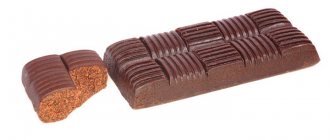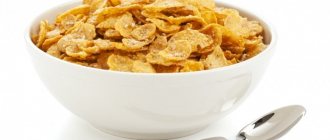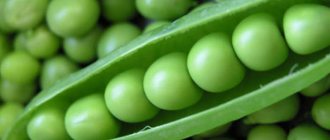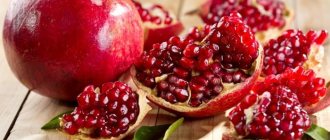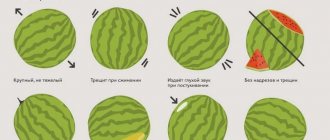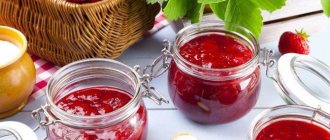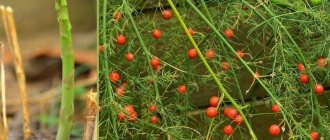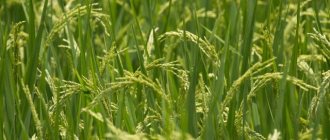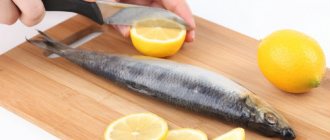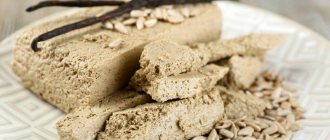Is it possible for a nursing mother in the first month after giving birth?
The first month of breastfeeding is the most important . Mommy adheres to a strict diet. But vitamins for a newborn are also very important.
Despite all its beneficial qualities, plums also have a second side to the coin. It can cause problems such as colic in the baby. That is why the fruit must be introduced very carefully. You need to eat half a plum in the morning and observe what reaction your baby has during the day.
If colic occurs, then use is contraindicated for the next two months. But, if no ailments are identified, you can increase the amount every day.
Important! Plums are allowed, no more than two per day! As for the eternal question, from what day can a nursing mother have plums, it will be known already in the maternity hospital. Since from the first day they give compote with their addition. So you can safely give preference to unsweetened plum compote, but also remember the measure - no more than 250 ml per day.
Recipe for a tasty and healthy plum compote for a nursing mother
- plums of any type - 0.5 kg
- water - 1-1.5 l
- granulated sugar - 1-2 tablespoons
The fruits must be washed well, cut lengthwise into 2 parts and the seeds removed. Boil water in a deep saucepan. Place the prepared plums in boiling water and boil for 5-7 minutes under the lid. Then add sugar and cook for another 2-3 minutes. Cool the finished compote. For more flavor, you can add lemon zest and cinnamon along with sugar.
So, you can eat plums while breastfeeding. You shouldn’t deprive yourself of such a delicious dessert if there are no contraindications.
You can introduce plums into your diet while breastfeeding 3 months after the baby is born, provided there are no negative reactions to this product. Plum has moderate allergenic activity, but we still recommend introducing it into the diet gradually, and conducting the first tasting in the first half of the day. When breastfeeding, babies most often have no allergic reactions to plums, with the exception of individual intolerance.
Product benefits
It is worth noting that fruits have a positive effect on digestion, reduce acidity, and help prevent anemia . Plum is rich in vitamins, namely:
- Vitamin A.
- Vitamin C.
- B vitamins.
- Iron.
- Phosphorus.
- Betta-carotene.
- RR.
- Potassium.
- Calcium.
- Magnesium.
Plus, plum has a laxative effect . Constipation is a common problem in infants during breastfeeding. She will help you cope very quickly. Plum also acts as a decongestant and diuretic, which will greatly help mommy regain her shape quickly enough. Few people know that this fruit acts as an antiplatelet agent, that is, it prevents blood clots.
For a baby, plum becomes a real salvation from constipation. Therefore, if there are no reactions, you can safely introduce plum compote into your mother’s diet.
Beneficial properties of plums for a nursing woman
The plum tree was created by crossing trees such as sloe and cherry plum.
For the first time, these juicy fruits began to be consumed in the Caucasus and Central Asia; in the Middle Ages, plum trees spread throughout Europe. At the moment, there are several dozen types of this fruit in the world. Delicious preserves, jams, compotes are made from plums, consumed raw or baked; some types of plums are suitable for drying, from which the famous prunes are obtained. These fruits contain a huge amount of vitamins E, B, A, minerals (potassium, iron, phosphorus, zinc and manganese) and organic acids such as folic and nicotinic.
For a nursing mother, eating this fruit has a beneficial effect:
- helps to regenerate the skin, improve its color, because often the skin of mothers’ faces after childbirth has a dull color;
- plum is an assistant for hypertension, it helps strengthen blood vessels and reduce blood pressure;
- has a slight calming effect;
- Often after childbirth, women suffer from constipation; when breastfeeding, bowel problems can be passed on to the baby, and plum has a good laxative effect, which will help improve the functioning of the intestines of the woman and the baby;
- This fruit also has a diuretic effect, it will help the mother get rid of edema and remove excess fluid from the body;
- this product will help improve vision;
- Often mothers after childbirth or while breastfeeding develop anemia; thanks to the iron contained in plums, hemoglobin levels can be raised.
Read also:
The importance of honey during breastfeeding
However, despite all the beneficial properties of this delicacy, it is not recommended for those suffering from diabetes.
Why is the fruit dangerous?
Excessive consumption of plums may cause undesirable consequences:
- Allergies in an infant . It is the dosage that plays an important role. Even one plum will make itself felt on the child’s cheeks if he has a tendency to the allergen.
- Diarrhea in mother and baby . If this poses virtually no threat to the mother, then the baby becomes dehydrated in almost a few hours. This could threaten his life.
- The appearance of colic in an infant.
- Diuretic effect . If this is a real salvation for the mother, if she suffers from edema, then for the baby this is the same path to dehydration.
To avoid negative aspects and get only pleasure and benefits from eating the fruit, you must adhere to the rules for use while breastfeeding.
What's the benefit?
For Mom
During breastfeeding, it is advisable for a woman to include fresh or dried plums in her diet for the following reasons:
- Improves complexion, renews skin cells.
- Strengthens blood vessels and fights high blood pressure.
- Helps with constipation.
- Removes excess fluid from the body due to its diuretic effect.
- Raises hemoglobin levels and prevents the development of anemia.
- Has a beneficial effect on vision.
For babies
- Activates intestinal motility and reduces stomach acidity.
- Vitamin A promotes rapid tissue repair in case of bruises.
- Vitamin B improves metabolism.
- Vitamin C strengthens the baby’s immunity and regulates the functioning of nerve cells.
- Iron maintains the required level of hemoglobin in the blood.
- Phosphorus is essential for bones and ensures healthy growth.
- Calcium strengthens teeth, nails, and hair.
Many women report that changing their diet has helped relieve constipation in infants. In addition to plums, the list of recommended foods includes: apple juice, prunes, olive oil, barley, apricots, peaches, pears and spinach.
Rules for selection and storage
Everyone knows that any fruit is healthy only during its ripening season. Plums are no exception. A nursing mother can eat seasonal fruits . It is, of course, better to purchase from private owners, since the fruits grown will be free of pesticides and other chemicals.
Fruits must be selected without cracks, as rot may already be developing there. Also, the fruit should be firm and have a light white coating. This is what indicates the health of the fetus and that it was collected on time.
Attention! You cannot buy fruits with white spots and streaks. This indicates chemical processing. You can get severe poisoning.
It is worth noting that dried plums, namely prunes, should be consumed with extreme caution, because they contain acrylamide, a famous natural carcinogen and toxin. It is also necessary to take into account that jams and compotes cooked with seeds are dangerous.
The fact is that in the “heart” of the plum there is a specific substance called amygdalin; when exposed to high temperatures, it is destroyed to hydrocyanic acid - this is a strong poison. If recipes call for additional fruits, check carefully to see if they are allergens.
Benefit
In terms of vitamin composition, plums are significantly ahead of the “king of fruits” like apples. With a very low calorie content - 49 kcal per 100 g - plum contains an abundance of vitamins C, B1, B2, B5, B6, E, PP, A and, in slightly smaller quantities, B9. The mineral composition of the fruit is also rich, in which silicon, molybdenum, cobalt, copper, potassium, chromium, and manganese are the leaders, followed by iron, iodine, phosphorus, magnesium, calcium, sodium, zinc and sulfur.
In addition to their rich chemical composition, plums can provide:
- laxative effect (and many mothers encounter the problem of constipation in infants during breastfeeding)
- anti-edema effect;
- diuretic effect;
- antiplatelet effect (prevention of blood clots);
- calming effect.
Recommendations for use during lactation
The fruit should be consumed only in the first half of the day . After carefully monitoring the child, draw conclusions whether there are any changes in the child’s stool.
Do not forget about washing the fruits, but it is better to leave them in water for 1-1.5 hours. Even if there are some harmful substances in the drain, they will remain in the water.
As for compotes, you need to know when to stop , because, as you know, during lactation, you need to calculate how much liquid you drink.
If there is too much, then more milk may arrive than needed. If the baby is still very small, he will not be able to eat everything, and subsequently, the mother may develop mastitis due to stagnation of milk.
When and how to safely start using during lactation
A young mother needs to start eating plums 3-4 months after the birth of her baby. It is worth introducing the product into the diet gradually, adhering to the following rules:
- Try a small piece first. Do this in the morning.
- Over the next two days, observe your child's reaction.
- If you notice the appearance of colic or flatulence after consumption, it is better to try plums later, after 2-3 months. If there are no negative symptoms, eat plums carefully and in moderation.
- Be sure to wash the plums, otherwise food poisoning is possible, which will negatively affect the baby’s fragile body.
Plums are not the kind of fruit that a nursing mother can gorge on like apples. Their laxative effect has been proven, and it can cause digestive upset in a child . Limit yourself to two glasses per day. You can drink plum compote. It is better absorbed and carries virtually no potential harm.
More gentle on the baby's digestive tract are plum compotes, plum jams and preserves. But do not use compote that was made from fruits with seeds.
When heated, the bones release a substance - amygdalin, which in the body can be transformed into hydrocyanic acid - a strong poison. This component is absent in fruit pulp. We offer recipes for making compote and plum jam, which will be useful for mothers while breastfeeding.
Compote
Wash half a kilogram of plums well. Cut the fruit and remove the seeds. Place the fruit in 0.5 liters of boiling water, wait a few minutes. Add two tablespoons of sugar.
If your baby is not allergic, you can add cinnamon and lemon zest. Cover the pan and cook for 5-7 minutes. You can drink it after cooling.
Jam
Wash a kilogram of plums thoroughly, cut them and remove the seeds. Place the fruits in a saucepan, add a kilogram of sugar and leave for an hour. Then keep on very low heat for another 60 minutes.
Bring to a boil over medium heat and quickly remove the pan from the stove. Pour the jam that has not yet cooled down into jars.
Jam
Wash a kilogram of ripe fruits, remove the peel, seeds and tails. Cut into four pieces.
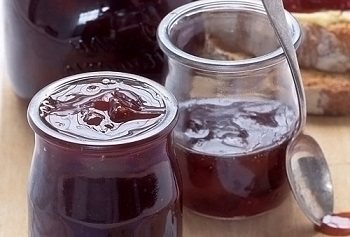
Pour a glass of boiling water into a large saucepan and place the fruits there.
Bring the mixture to a boil and cook for 20 minutes, stirring regularly. Then add a kilogram of sugar in small portions.
Wait a few minutes after adding the last bit of sugar, then skim off any film that forms on the surface.
Cook for forty minutes, then add half a teaspoon of citric acid.
Pour the jam into sterilized jars and seal with metal lids. You can also eat jam fresh.
Find out more about Analdim antipyretic suppositories for children in our review.
We will talk about another popular drug for reducing fever - Nurofen in suppositories for children, their composition and indications for use in this material.
There is another effective and efficient drug against pain and fever - Viburkol. How do candles for children work at high temperatures? Find out by reading the next article.
How to introduce plums into the diet of a nursing mother?
If you and your child are not allergic, then, of course, plums are not only possible, but also necessary to include in your diet.
But you need to do this gradually, trying, for example, one in the morning and one in the evening.
This way, you will allow the baby to get used to the innovation. Well, if your baby has a reaction in the form of allergies or digestive problems, you should put these fruits aside for a while.
Read more about introducing new foods into your diet in the article “Nutrition for a Nursing Mother”>>>
So, your baby passed the first test on a small amount of plum well, now you can gradually increase the dose.
Despite the fact that plums contain many vitamins and other beneficial substances, you should not overuse this wonderful product.
To get the required amount of nutrients, a small amount is enough, but too much can cause intestinal upset in the baby, since plum has a laxative effect.
If you decide to eat plums to relieve your baby of constipation, you should also introduce this healthy fruit in a minimal amount.
Perhaps you have a question: can a nursing mother eat plums raw or are there other options?
Of course, there is an alternative.
Plum will not become less useful if it is consumed in dried form.
Rules for eating plums while breastfeeding. When to introduce the product into the diet?
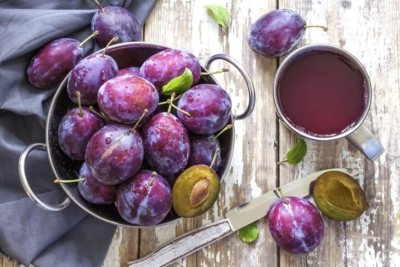
The period of breastfeeding is very important for any mother, because she needs to give everything her baby needs and not cause harm. Therefore, food products for a nursing mother should be carefully selected, including fruits. Plum is one of the fruits that can be consumed during breastfeeding, because it is not only healthy, but also has low allergenicity. The article describes in detail the nuances of eating plums during breastfeeding.
About the benefits of plums
The plums that appear on the shelves of markets and supermarkets in the second half of summer amaze with the variety of varieties, each of which is good in its own way. These tasty and aromatic fruits contain many valuable vitamins and minerals necessary to preserve youth and beauty. Among them:
- vitamin A, necessary for rapid tissue repair, maintaining visual acuity, healthy hair and skin elasticity,
- B vitamins, responsible for the functioning of the central nervous system and normalization of metabolic processes,
- vitamin C, which improves immunity and normalizes blood circulation,
- vitamin PP, which has a beneficial effect on oxidation processes,
- iron, necessary for the restoration of hemoglobin and bone tissue renewal,
- calcium, which is responsible for the condition of the structure of nails, hair and tooth enamel,
- potassium, which regulates water-salt balance and improves blood clotting,
- magnesium, which lowers cholesterol, normalizes blood pressure and increases resistance to stress.
In addition, plums contain antioxidants necessary for the prevention of cancer and prevent premature aging of the body. But is it worth eating plums while breastfeeding? After all, it is well known that they can be used as a mild laxative. Let's try to figure it out!
